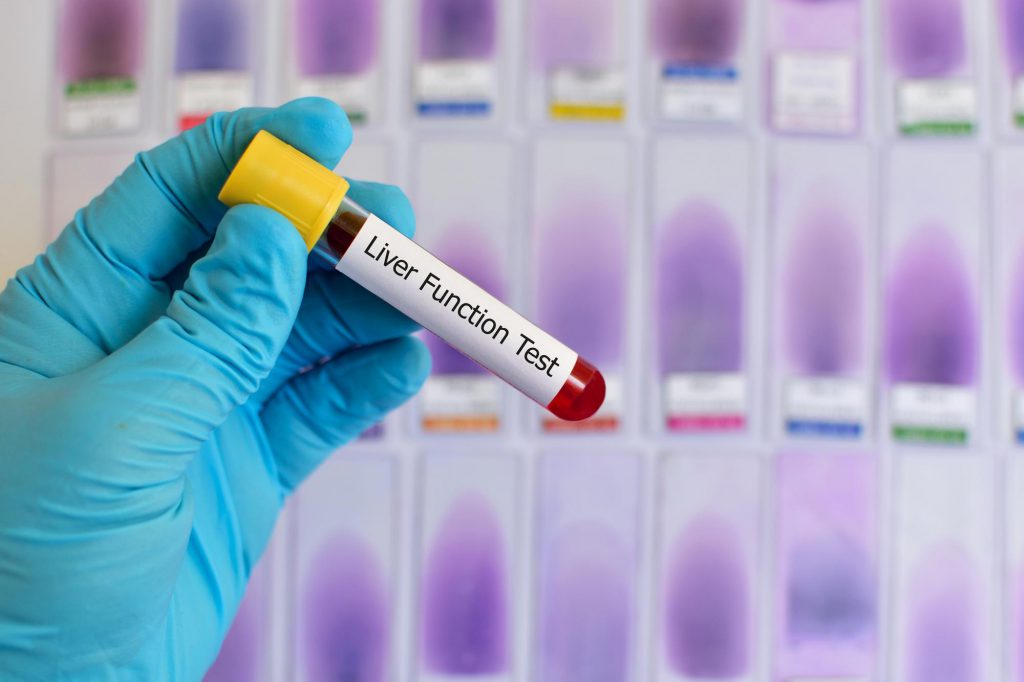Home » Screening Services » Liver, Kidney, Diabetes
Liver, Kidney, Diabetes

The function of the liver and kidney are critical to overall health, which is why so many doctors include these screenings when evaluating a person’s risk for chronic disease. In addition, early detection of risk for diabetes can play a significant role in long-term health and wellness. Diabetes puts people at higher risk for stroke, heart disease, and other chronic conditions. The descriptions of these screenings will help you understand what we are looking for and what you can do with the results:
Chronic Kidney Disease
Chronic Kidney Disease (CKD) occurs when damaged kidneys cannot filter blood effectively. Waste builds up in the body, which can lead to health problems like heart disease, poor nutritional health, stroke, anemia, nerve damage and bone disease. A simple finger-stick blood draw is all that’s needed to measure the creatinine level in the blood, which is used to estimate the glomerular filtration rate of the kidneys, or eGFR. The eGFR rate can indicate how well the kidneys are functioning to clear waste from the blood.
Elevated Liver Enzyme
Liver Function Screening determines if Alanine Aminotranferease (ALT) and Aspartate Aminotransferase (AST) liver enzymes are elevated in the blood. These liver enzymes spill into circulating blood when liver cells are injured. Liver damage can be caused by hepatitis, alcohol consumption, diabetes, obesity, or statin-lowering medication. Liver function screening is a simple finger-stick blood test to determine if the ALT and AST liver enzyme levels are in the normal range or if they are elevated, providing an early indication of liver damage.
Vital Organ Screening
This screening combines the liver enzyme and chronic kidney disease screenings into one convenient test.
Type 2 Diabetes
Diabetes is a disease in which the body does not produce or properly use insulin (the hormone that converts food into energy). The most common type of diabetes is Type 2, in which the body does not use insulin properly, called insulin resistance.
Diabetes is growing—in 2015, 30 million Americans (9.4% of the population) had diabetes, and over 20% are not aware they have it. Among people age 65 and older, 25% of the population has diabetes. The statistics are important to help us understand how common diabetes is, and how important it is to be screened. Diabetes puts people at a higher risk for stroke, heart disease, vision decline, circulation problems, and other chronic conditions. With a simple finger-stick blood sample, you can understand your risk for developing diabetes.
Annual Key Health
The Annual Key Health (AKH) Assessment is a comprehensive screening that, combined with your vascular screening results, provides a deeper look into your risk for heart disease, stroke, and other chronic conditions. This screening is our most popular blood screening package because of the powerful information received.
Beginning with the 6 For Life, the AKH uses blood analysis, biometrics, and a proprietary algorithm to predict your risk of developing 6 chronic conditions: Heart disease, stroke, congestive heart failure, diabetes, Chronic Obstructive Pulmonary Disease (COPD), and lung cancer. The results report points out exactly what is putting you at risk of these diseases and what you can do to reduce your risk before they develop. The AKH also provides a High-Sensitivity C-Reactive Protein (hs-CRP) measurement. C-Reactive protein is released into the bloodstream when there is inflammation in the body. Because plaque buildup in the arteries actually damages the arteries, inflammation occurs, and this protein is released into the bloodstream. New research indicates that high sensitivity C-Reactive Protein is a reliable indicator for risk of cardiovascular disease, and is a key screening in understanding your overall risk for heart disease.
Wellness Panels for Men and Women
Because many people want a comprehensive blood screening for a more complete look at their health, we have developed Wellness Panels to bundle key tests and save you money:
- Wellness Panel for Men: Contains glucose screening, C-reactive protein, and prostate-specific antigen (PSA).
- Wellness Panel Premium PLUS for Men: measures kidney function, C-reactive protein, glucose, thyroid function, prostate-specific antigen (PSA), and testosterone
- Wellness Panel for Women: Measures C-reactive protein, glucose, and thyroid function
- Wellness Panel Plus for Women: Measures C-reactive protein, glucose, thyroid function, and kidney function
We encourage all Life Line Screening participants to share your results report with your personal physician. Based on your ultrasound, ECG, blood results, and your medical history, you and your doctor can determine a plan of action to maintain your health and independence as long as possible. Do it for you and your family!